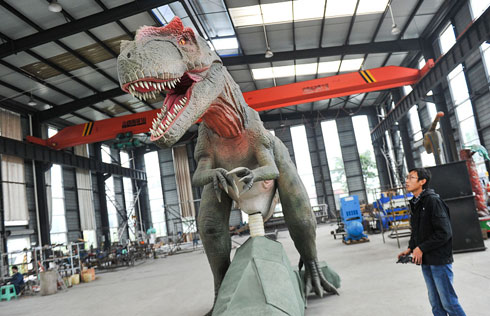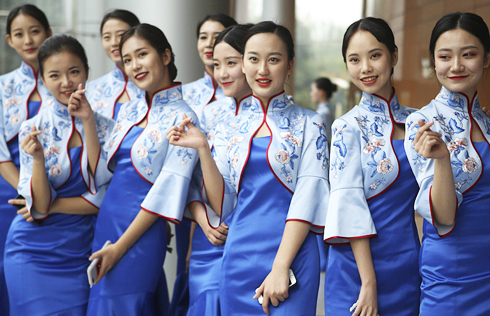Frank Facts on Frankenfoods
The verbal jabs have caused a stir among the public, as more GM soybeans are hitting China's market.
The Ministry of Agriculture (MOA) confirmed on June 13 it had approved imports of three varieties of GM soybeans to be made into cooking oil.
Three varieties of GM soybeans, which all fare better against insect attacks and herbicide, have been approved for commercial planting or consumption in many countries, including the United States, Canada, South Korea and Japan, the statement said.
Peng Yufa, Deputy Director of the committee, said that the entire review process for the three varieties was carried out in strict accordance with the law and their safety is guaranteed.
Though authorities try to reassure the safety of GM products, there is still widespread skepticism.
Gu Xiulin, a professor at Yunnan University of Finance and Economics, believes China should develop its own tests to check the risks of GM products to people's health.
"The tests must be long-term in nature and last over a period of years rather than months. Only then can problems be revealed," Gu said.
A controversial issue
Genetic modification of organisms took off in the 1970s, when scientists spliced selected genetic material from one organism into that of non-related species to create the first transgenic organisms.
The US Food and Drug Administration approved the Flavr Savr tomato in 1994 after two years of evaluations. The tomato became the first genetically engineered food approved for human consumption.
In 2012, the area cultivated for GM crops rose to 170.3 million hectares worldwide from only 1.7 million hectares in 1996, according to a report released in February by the International Service for the Acquisition of Agri-biotech Applications (ISAAA), an international NGO that promotes the use of agricultural biotechnology.
Despite this, GM foods remain controversial nearly two decades after commercial introduction, as there is still no consensus on whether or not it is harmful to the human body.
China started researching GM crops in the mid-1980s. In 1997, the Chinese Government approved commercial planting of GM cotton for the first time.
The ISAAA report claimed that China grew 4 million hectares of GM crops in 2012, making it the sixth largest area in biotech farming after the United States, Brazil, Argentina, Canada and India. The figure has not been officially confirmed by the Chinese Government.
In November 2009, in a landmark decision, the MOA issued bio-safety certificates to two strains of pest-resistant GM rice and corn. The move, which sparked long-running debates about the safety of GM foods and their impact on the environment, made China the first country in the world to give a nod to field trials of GM grains.
Then came the latest approval by the MOA of three varieties of GM soybeans to be imported as processing materials on June 13, which brought the number of types of transgenic soybeans approved to be imported in China to eight.
China began to import GM soybeans in 1997 to meet surging domestic demand. Last year, the country imported 58.38 million tons of soybeans, mostly GM varieties, while its own soybean production was about 13 million tons, official statistics showed.
The World Health Organization said that there are three main issues surrounding GM foods—the potential for allergic reactions, transferring harmful genes to the human body and crossbreeding with other plants.
Yuan Longping, a famous agricultural scientist known as the "father of hybrid rice," has repeatedly urged the government to proceed cautiously with any move to commercialize GM crops.
"One of the major features of GM crops is their ability to resist insects, but even scientists do not know what if any impact this will have on human beings," Yuan said.
However, Fang Zhouzi, a popular science writer who has a doctorate in biochemistry from Michigan State University in the United States, argues that GM foods pose no risk to human health. He said that the United States and Canada have applied the technology for nearly 20 years without apparent health effects, adding GM crops even benefit the environment by reducing the use of pesticides.
Xue Dayuan, a professor of biotechnology at Minzu University of China, said that authorities need to set up effective risk-evaluation and management mechanisms before commercializing GM products as some GM seeds are already in circulation in the country.
"It is true that GM technology is crucial for China's agricultural development, but compared with advances in the technology, more needs to be done in terms of supervision and management," Xue said.
























